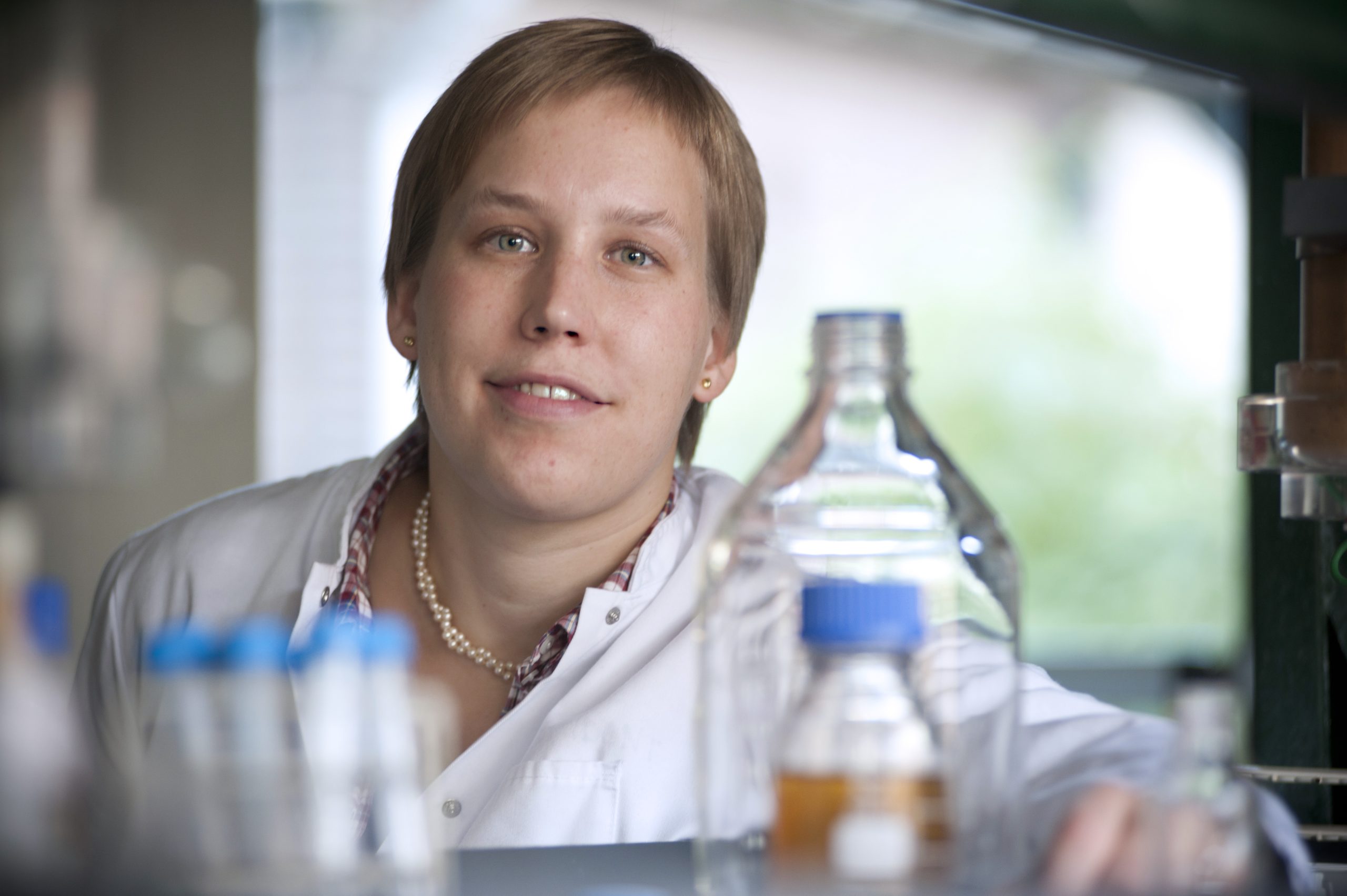Bioprocess engineer Leonie Marang receives the Unilever research prize today for her Master’s thesis on plastic-producing bacteria that thrive on waste streams.
Only the fat ones survive in Leonie Marang’s reactors at the laboratory of Environmental Biotechnology (Applied Sciences). The bacteria here, which come from activated sludge, live under feast and famine conditions. They are fed acetate and lactate (typical ingredients of an industrial waste stream) for 15 minutes, after which the supply stops and the bacteria are left starving for about half a day. Only those bacteria that are very efficient in converting the food stream into storage polymers – visible inside their bodies as white granules – survive this regime. The result is a bacterial population that is incredibly efficient (up to 90 percent of their body weight) in making and storing polymers, generally known as polyhydroxyalkanoates (PHAs) or more popularly as degradable bio-plastic.
In a recent article, Marang sketches the market and environmental potential of such bioplastics. The total amount of plastic produced in 2008 amounted to 245 million tones, around 38 percent of which was used for packaging and discarded shortly after manufacture. ‘Bioplastic, plastic-like materials that are biodegradable and produced from renewable sources, could be a sustainable alternative to the durable synthetic polymers currently used for these short-term applications,” Marang wrote.
Her research involved continuing the work started by Dr Katja Johnson (PhD in February 2010), who showed mixed cultures in non-sterile reactors thrive very well on acetate feeds. Marang has added lactate to the feed stream and shown that, although the composition of the bacterial community may change, the functionality of the cultures remains much the same.
“Obviously, Marang is a very good student,” says her supervisor, Professor Mark van Loosdrecht, “or we wouldn’t have kept her here for her PhD-project.” He nominated her for the Unilever research prize. Prof. van Loosdrecht praises her communication skills and the fact that as a student she had already contributed to three publications.
In her PhD project, Marang will try to scale up the plastic-producing bacteria from the lab reactors towards a larger scale, and she will switch over to actual industrial waste as feed streams. In doing so, numerous practical problems will have to be conquered to keep the bacteria happily producing. Eventually she envisions an industrial on-site reactor in which bacteria convert waste streams into bioplastics.
Leonie Marang, ‘Substrate influences on the production of polyhydroxybutyrate by aerobic mixed culture fermentation’, MSc thesis supervisor, Professor Mark van Loosdrecht (AS), 7 October 2010.
Arun Kumar, masterstudent aan de faculteit Elektrotechniek, Wiskunde en Informatica, geeft zijn eigen idealisme een 7. Hij geeft niet regelmatig aan goede doelen, doet geen vrijwilligerswerk, koopt ook niet biologisch of Fair Trade. Kumars reden: “Ik moet eerst mijn eigen leven opbouwen en mijn financiële situatie verbeteren door een carrière op te bouwen.” In India collecteerde de student telecommunicatie met een groep vrienden geld voor bijvoorbeeld weeskinderen. Idealen die hij belangrijk vindt zijn het tegengaan klimaatverandering, het verminderen van oorlogen en conflicten en een eerlijke wereldhandel. “Gletsjers veranderen in water. Nederland heeft nu nog genoeg aan dijken, maar is dat op de lange termijn ook nog zo?” Oorlog en conflict ziet hij van dichtbij met India en Pakistan die zich oorlogszuchtig opstellen. Ook de strijd in Irak raakt Kumar. Een eerlijke wereldhandel zou volgens hem gemakkelijk te bereiken moeten zijn, doordat landen wat ze kunnen missen ruilen voor wat ze nodig hebben.



Comments are closed.